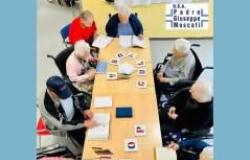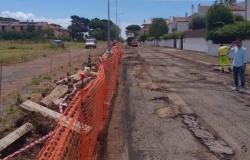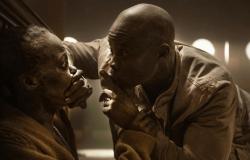New implications in the case of Eluana Englaro, on whose story the final word has yet to be written. 15 years after her death, the Court of Auditors condemned on appeal the former director general of Lombardy Health Carlo Lucchina to pay approximately 175 thousand euros to the Treasury for having prevented the interruption of the treatment that kept her alive Eluana. This is the amount that the Lombardy Region had to compensate Beppino Englaro, who was forced to transfer his daughter to a health facility in Udine, Friuli, where the woman was ultimately free to die on 9 February 2009, at the age of 39, in following discontinuation of artificial nutrition.
For the accounting judges, as stated in the sentence reported by Corriere della Sera, the decision of the former director general Lucchini on Eluana’s case was driven by «a personal and ethical conception of the right to health understood as essentially aimed at ensuring the most appropriate treatments to guarantee the good of the person’s life”. A refusal, his, «the fruit of an authoritative and unilateral conception of the right to health – argues the Court of Auditors -, which was placed in exact antithesis with the final provision of the civil judge and with the different representation expressed by him of the right to health as the patient’s right to refuse treatment”.
Symbol of the end-of-life battles, Eluana Englaro’s story has long been at the center of the debate, splitting public opinion in two. Just twenty years old, on 18 January 1992, she was involved in a very serious car accident which forced her into a permanent vegetative state for 17 years, immobilized in a clinic in Lecco and fed with a nasogastric tube. Support that her father asked to remove according to her will expressed in life as her daughter, i.e. the desire to refuse any “therapeutic fury” in similar conditions. Hence the legal battle undertaken by Beppino Englaro, in his capacity as guardian.
Unlike the events concerning access to assisted suicide, the issue in fact concerned the possibility of interrupting the treatments according to the reconstructed will of Eluana, now in a state of unconsciousness, in that clinical picture which did not provide margins for treatment and improvement. After the no of the court of Lecco and the Court of Appeal of Milan, the case reached the Supreme Court, which in 2007 marked a turning point in the matter by admitting the right to interrupt treatments in the presence of certain conditions and referring the decision to the Court of Appeal. On the basis of that ruling, the following year, the judges of Milan authorized the suspension of forced feeding. But at that point no health facility was willing to take responsibility for interrupting nutrition. An eventuality against which politicians and associations moved. The Chambers and the Lombardy Region raised a conflict of attribution against the Supreme Court, but the appeals were deemed inadmissible by the Constitutional Court. Lucchini himself, then director of Healthcare in Lombardy, opposed it with a note issued in 2008 in which it was argued that if the health workers had followed up on the request to disconnect the feeding tube they would have “failed to fulfill their professional obligations”, since the structures healthcare providers deal with the care of patients.
Stage after stage, the affair became a real national and media case, between appeals and political battles which saw the Radicals in the foreground in support of the Englaro family. On 22 December 2008 the European Court of Human Rights rejected the appeal of several associations against the decree of the Court of Appeal of Milan which authorized the detachment of the feeding tube. Beppino Englaro turned to the TAR, which in January 2009 accepted his request, but the Lombardy Region did not carry out the sentence.
In that same year the epilogue in Udine, after the Berlusconi government had attempted to issue an ad hoc decree law: Eluana Englaro died in the only structure willing to put into practice the protocol authorized by the judges of Milan. The Lombardy Region was condemned to pay approximately 175 thousand euros for the damages suffered by the Englaro family, forced to support the transfer. Subsequently, the Court of Auditors initiated tax proceedings against Lucchina, who was acquitted at first instance, with the judgment then overturned on appeal.
«It was not a conscientious objection, but the directives also received from the regional lawyers were applied», the former director, who will evaluate whether to appeal to the Supreme Court, commented to Corriere della Sera. “They could have avoided everything they did, now they realize, it’s clear that they made a mistake and they have to answer for it,” Beppino Englaro told Ansa after hearing the news. «They obstructed, I acted legally – he adds – whoever obstructed can see it now. I knew I had a right and it was clear that they were hindering it, so much so that I had to leave the region. Now it’s their problem, I had to do justice myself, always within the law and in society, they committed something they shouldn’t have committed. Everything was clear to me even then, I had to ignore them and go my own way.”





